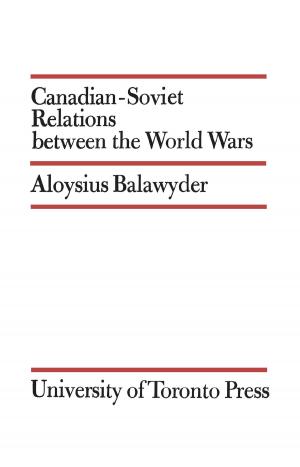Layers In Husserl's Phenomonology
On Meaning and Intersubjectivity
Nonfiction, Religion & Spirituality, Philosophy, Phenomenology, History, Criticism, & Surveys| Author: | Peter R. Costello | ISBN: | 9781442661103 |
| Publisher: | University of Toronto Press, Scholarly Publishing Division | Publication: | December 7, 2012 |
| Imprint: | Language: | English |
| Author: | Peter R. Costello |
| ISBN: | 9781442661103 |
| Publisher: | University of Toronto Press, Scholarly Publishing Division |
| Publication: | December 7, 2012 |
| Imprint: | |
| Language: | English |
Layers in Husserl's Phenomenology provides close readings and analyses of a number of Husserl's key translated and untranslated works across the entirety of his corpus. While maintaining a dialogue with four decades' worth of scholarship on Husserl, Peter R. Costello provides a number of new and significant insights that depart from earlier interpretations of his work, along with a revised, consistent translation of a number of important Husserlian terms.
Layers in Husserl's Phenomenology situates Husserl firmly within the trajectory of later Continental thought and contributes to the recent reconsideration of Husserl as a legitimate precursor to the thought of Maurice Merleau-Ponty, Emmanuel Levinas, and Jacques Derrida. Written in a readable style appropriate for both undergraduate and graduate students, this study will be valued by those interested in phenomenology in general and in Husserl in particular.
Layers in Husserl's Phenomenology provides close readings and analyses of a number of Husserl's key translated and untranslated works across the entirety of his corpus. While maintaining a dialogue with four decades' worth of scholarship on Husserl, Peter R. Costello provides a number of new and significant insights that depart from earlier interpretations of his work, along with a revised, consistent translation of a number of important Husserlian terms.
Layers in Husserl's Phenomenology situates Husserl firmly within the trajectory of later Continental thought and contributes to the recent reconsideration of Husserl as a legitimate precursor to the thought of Maurice Merleau-Ponty, Emmanuel Levinas, and Jacques Derrida. Written in a readable style appropriate for both undergraduate and graduate students, this study will be valued by those interested in phenomenology in general and in Husserl in particular.















